Electric cars and hybrids are now common sights on our roads. And, last year, the pure EV brands of BYD and Tesla were two of the nation’s top selling passenger car marques.
In 2023, BYD sold 3715 cars, securing the No.10 spot on the list of the year’s best selling car brands, and Tesla shifted 4907 Model Ys and Model 3s, placing it at No.8.
In 2022, EV and hybrid cars accounted for just over a third of all new car registrations. And last year that percentage increased to 41%. Overall, pure EV models increased from a 10% market share in 2022 to 14.5% in 2023.
However, it’s clear the end of the EV subsidies has had a big effect. While hybrid sales are holding steady, EV numbers have plummeted. Just 4% of vehicles sold so far this year have been EVs, compared to 11% in the first six months of last year.
| Sales by Engine Type 2023 | Sales by Engine Types 2024 |
| 30% Diesel | 38% Diesel |
| 29% Petrol | 32% Petrol |
| 26.5% Hybrid | 26% Hybrid |
| 14.5% EV | 4% EV |
Top selling totally electric vehicle models:
This year’s total EV sales are well down. In a rush to beat the Clean Car Discount shut-off date, a record 3361 EVs were sold/registered in the last month of 2023 alone, compared to a total of 2212 in the first six months of this year.
However, despite many new models on the top-seller list, Tesla remains the country’s most popular EV:
| Top Selling EVs 2023 | Top Selling June 2024 | Top Selling EVs Year to Date 2024 |
| 1 Tesla Model Y (3936) | 1 Tesla Model 3 (67) | 1 Tesla Model Y (376) |
| 2 BYD Atto 3 (3171) | 2 Hyundai Kona (62) | 2 Tesla Model 3 (252) |
| 3 MG 4 (1793) | 3 BYD Atto 3 (47) | 3 BYD Atto 3 (116) |
| 4 MG ZS (1648) | 4 Hyundai Ioniq 5 (41) | 4 MG4 (98) |
| 5 Tesla Model 3 (971) | 5 Tesla Model Y (40) | 5 BYD Seal (96) |
| 6 Kia EV6 (955) | 6 Hyundai Ioniq 6 (27) | 6 Hyundai Ioniq 5 (92) |
| 7 Kia Niro (660) | 7 BYD Dolphin (24) | 7 Volkswagen ID.4 (86) |
| 8 Hyundai Kona (597) | 8 Volkswagen ID.4 (20) | 8 Hyundai Kona (82) |
| 9 Hyundai Ioniq (558) | 9 Ford Mustang Mach-E (17) | 9 Ford Mustang Mach-E (78) |
| 10 Polestar 2 (541) | 10 Volvo EX30 (16) | 10 Volvo EX30 (65) |
→Related article: Best Hybrid Cars in New Zealand
Compare Car Insurance with Canstar
![]()
Most popular electric cars in New Zealand
Below is an overview of the top-selling EVs of 2023 in New Zealand. Prices do not include on-road costs and should be used as a guide only.
Tesla Model Y (from $65,900)
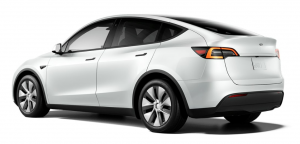 The Model Y comes in three versions (range/top speed/0-100km):
The Model Y comes in three versions (range/top speed/0-100km):
- Rear-wheel drive: 455km | 217km/h | 6.9s
- Long-range AWD: 533km | 217km/h | 5s
- Performance: 514km | 250km/h | 3.7s
All models come with an eight-year battery warranty, or 160,000km for the Real-Wheel Drive model and 192,000km for the AWD and Performance models, whichever comes first.
BYD Atto 3 (from $55,990)
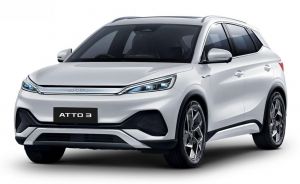
The Atto 3 comes in three versions (range/0-100km):
- Standard: 345km | 7.3s
- Extended: 420km | 7.3s
- Tachyon: 420km | 7.3s
The Tachyon is essentially the Extended model, but with with a cosmetic makeover. Atto 3 batteries come with a warranty of 8 years / 160,000kms, whichever comes first.
MG 4 (from $46,990)
The MG 4 comes in four standard versions (range/0-100km):
- Excite 51: 350km | 7.7s
- Excite 64: 450km | 7.2s
- Essence 64: 435km | 7.2s
- Long Range 77: 530km | 6.5s
The Essence and Long Range models come with greater levels of luxury and improved safety features. Also available is the MG4 XPower performance model (from $69,990), which boasts sports styling, a range of 400km and can speed from 0-100km in 3.8s. All models come with an unlimited km, seven-year warranty.
MG ZS EV (from $50,990)
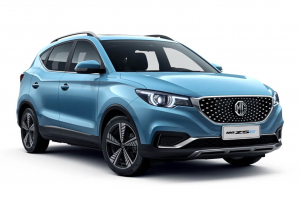
The MG ZS EV comes in three standard versions:
- Excite: 320km range
- Essence: 320km range
- Long Range: 440km range
The Essence and Long Range models come with greater levels of luxury and improved safety features. All models come with an unlimited km, seven-year warranty.
Tesla Model 3 (from $63,900)
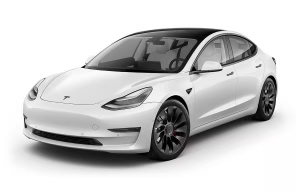
The Model Y comes in three versions (range/0-100km):
- Rear-wheel drive: 513km | 6.1s
- Long-range AWD: 629km | 4.4s
- Performance AWD: 528km | 3.1s
The battery warranties are 8 years (160,000km) for the rear-wheel drive model and eight-years (192,000km) for the long-range Model 3.
Looking for a Great Car Loan?
The table below displays some of the unsecured personal loan products available on Canstar’s database for a three-year loan of $10,000 in Auckland (some may have links to lenders’ websites). The products are sorted by Star Rating (highest to lowest) followed by company name (alphabetical). Use Canstar’s personal loan comparison selector to view a wider range of products on Canstar’s database. Canstar may earn a fee for referrals.
Compare car loans with Canstar
About the author of this page

This report was written by Canstar’s Editor, Bruce Pitchers. Bruce has three decades’ experience as a journalist and has worked for major media companies in the UK and Australasia, including ACP, Bauer Media Group, Fairfax, Pacific Magazines, News Corp and TVNZ. Prior to Canstar, he worked as a freelancer, including for The Australian Financial Review, the NZ Financial Markets Authority, and for real estate companies on both sides of the Tasman.
Enjoy reading this article?
Sign up to receive more news like this straight to your inbox.
By subscribing you agree to the Canstar Privacy Policy





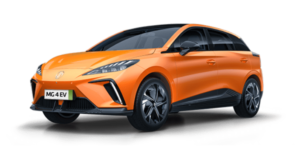



Share this article